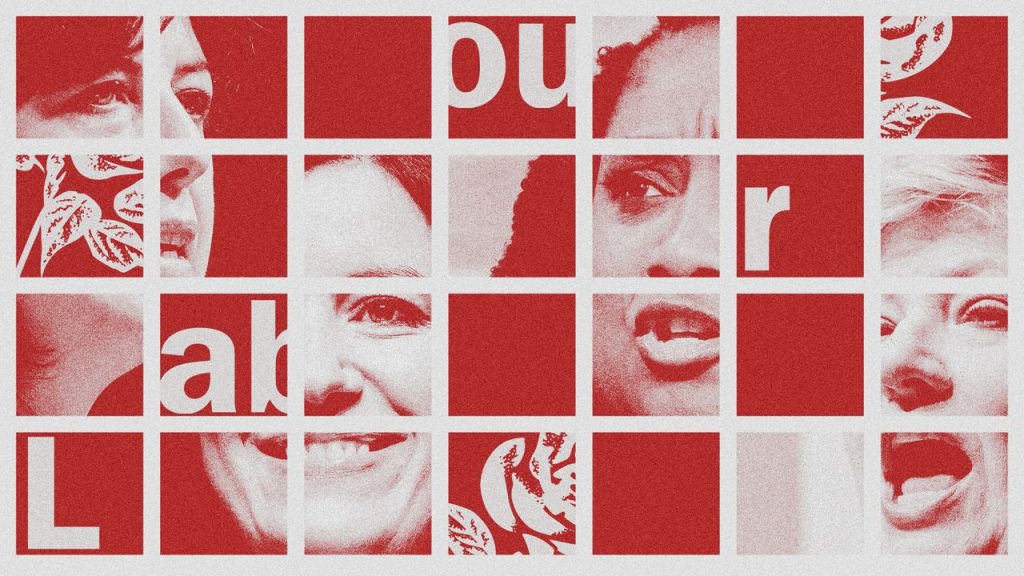Candidates in Labour’s deputy leadership race face a frantic few days to secure enough support to make it on to the final ballot sent out to party members.
In a truncated contest to replace Angela Rayner, MPs have until 5pm on Thursday to get the support of 20% of the Parliamentary Labour Party (PLP) – that is 80 Labour MPs. They also need the backing of three affiliates, of which two must be affiliated trade unions or 5% of constituency Labour parties.
“Such a high bar will certainly be difficult for those on the left of the party to meet,” said The New Statesman, with left-wing MP Richard Burgon describing the proposed timetable as “the mother of all stitch-ups”.
Those who meet the threshold will then go forward to a preferential vote of Labour members, with the winner announced on 25 October.
Many expect the contest to come down to a favoured candidate of the government versus someone from the soft left who has the support of backbenchers and unions. There is general consensus that whoever it is, they cannot be an MP from London and should probably be a woman – to serve as a counterweight to Keir Starmer and his new deputy PM, David Lammy.
So who is expected to throw their hat into the ring?
Emily Thornberry
The chair of the Foreign Affairs Committee was quickest out of the gate to canvass potential support among MPs and has emerged as an “early frontrunner”, said The Telegraph. Disappointed to have missed out on a cabinet post despite a long history on the shadow front benches, she has “established a reputation as a fiery Labour grandee”, criticising the PM’s position on the war in Gaza. One MP said she was the “yin to Starmer’s yang”, and “someone who has that charisma and communication if we are going to turn those polls around”. But like another rising star, Tooting MP Rosena Allin-Khan, Thornberry has one big problem. Both represent London constituencies, “putting them at a disadvantage” as the “consensus grows” that Labour’s new number two should come from outside the capital, said Kitty Donaldson in The I Paper.
Lucy Powell
The former Commons leader, who was sacked in Friday’s reshuffle, would be “an interesting candidate”, said Politico, in part “because she is (or was until Starmer fired her last week) close to the leadership – but that same sacking means she can also present herself to the membership as no No. 10 patsy”. She ticks the requisite boxes in that she is a woman and from the north of England, and has already received the backing of Andy Burnham, the influential mayor of Manchester. Powell, the Manchester Central MP, has also “emerged as the front-runner among colleagues in the PLP”, said Donaldson.
Bridget Phillipson
The education secretary “would be seen as a de facto Downing Street choice, potentially pitting her against Thornberry, who would position herself as a voice for backbenchers”, said The Guardian. Conveniently, the Sunderland MP is due to address the TUC Congress in Brighton later today, where she is expected to draw on her personal story “steeped in the proud working-class tradition of learning, of self-improvement” that took her “from a tough street of council houses to the cabinet”, said Politico. Phillipson “is a rare member of Starmer’s top table who might get a decent amount of support from the unions”. She is probably the closest fit to Rayner.
Alison McGovern
The former employment minister, who was moved to the housing and communities department in Friday’s reshuffle, “would also be seen as acceptable to Downing Street”, said The Guardian. One union ally told Politico that McGovern, “a big fan of Gordon Brown, has the potential to be a compromise candidate for No. 10 backing: she’s a minister but she doesn’t have the toxic baggage”.
Anneliese Dodds
The former development minister “bolstered her integrity credentials inside the party” after resigning “over principles and not in disgrace after the international aid budget was cut”, said Sky News. Starmer’s first shadow chancellor, she also has “a forensic knowledge of the internal workings of the Labour Party and, as a former women and equalities minister, has broad appeal within the party”. But while well respected, “some MPs may want someone more brash”, more in the mould of Rayner, said Politico.
Race to replace Angela Rayner likely to come down to Starmer loyalist vs. soft-left MP supported by backbenchers and unions
